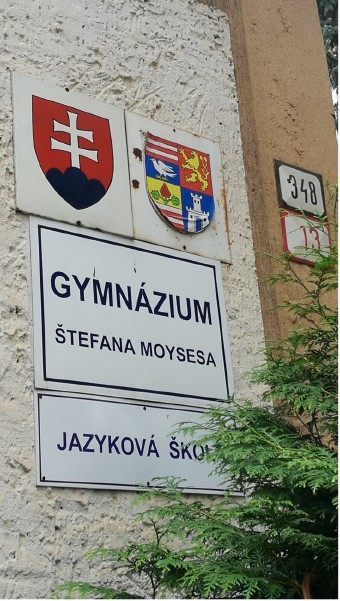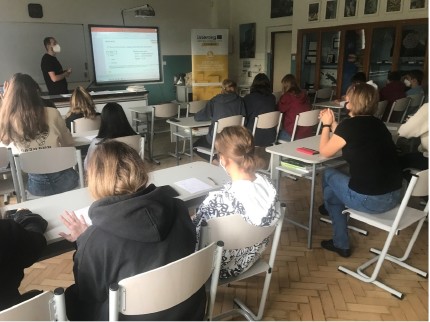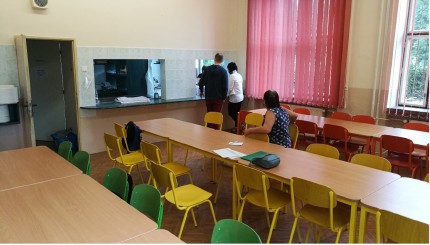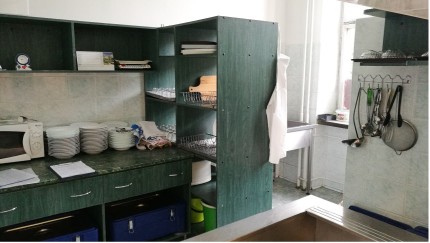Cooperation with schools from the Košice region on a pilot activity within the CITYCIRCLE project

EGTC Via Carpatia, in cooperation with the Technical University of Košice, focuses on the analysis of waste production at secondary schools in the Košice Region as part of the pilot activity within the CITYCIRCLE project. For this purpose, a survey was carried out among schools to find schools that will be involved in this activity. Based on the survey, a total of 3 schools were selected, namely the Štefan Moyses Grammar School in Moldava nad Bodvou, the Joint School Opatovská Cesta Košice and the Secondary Industrial Technical School in Spišská Nová Ves. The main selection criteria included mainly the school's activities in the field of waste separation, their motivation to cooperate and the school's overall policy in the field of waste management. The selected schools were subsequently involved in a pilot activity in which their staff measured, weighed and recorded the amount of waste produced by the school. In this way, data will be obtained on the amount of biological waste generated in school canteens, classrooms and the amount of waste processed by an electric composter. The obtained waste data will then be analyzed in order to prepare recommendations for other schools regarding efficient waste management. Cooperation with those schools represents a significant contribution to the implementation of the project and the pilot activity.
Štefan Moyses Grammar School in Moldava nad Bodvou
The first of the schools involved in the pilot activity is the Štefan Moyses Grammar School in Moldava nad Bodvou. As part of the preparation and organization of the pilot activity, we met with representatives of this school, where we discussed the course of measuring waste generation at school. Part of the pilot activity is also the education of students about the circular economy. Therefore, on September 16, 2021, in cooperation with the Friends of the Earth organization, an "enviro day" was organized at this school, during which students participated in practical demonstrations and lectures on the issue of circular economy.

The beginnings of this secondary school date back to 1954, when the first year of the Eleven-Year Secondary School in Moldava nad Bodvou was opened. The school combined classes with Slovak and Hungarian languages as the area around Moldava nad Bodvou is an ethnically mixed area. In 1970, when the charter of the grammar school in Moldava nad Bodvou was issued, the school became organizationally independent. At the end of the 1980s, the efforts of teachers were aimed not only at improving the conditions of general education but also at creating conditions for the teaching of informatics and technology. Geography, engineering and language classrooms were built. Based on the successes in various competitions and olympics and the excellent educational and teaching results that the school has achieved since its inception, it was awarded the honorary title of Štefan Moyses Moldava nad Bodvou Grammar School by the Ministry of Education in 1998.

Curently, about 100 pupils study at this grammar school in 4-year and 8-year studies. The school offers three specializations within the school educational program: Working with information in modern society, Man and the environment, Man and technology. The first block of education is focused on the development of communication skills and on the subjects of the educational areas of man and society, language and communication. Pupils can profile themselves within the subjects of mass media communication, media education, art and culture. Pupils in the second block focus on subjects in the field of man and nature, language and communication and the subject of geography. The third block offers students technical education, especially in the field of informatics and mathematics. School teachers are constantly striving to introduce modern teaching methods and approaches that allow them to develop key knowledge of graduates. The school obtains innovative procedures and approaches not only from the continuous education of teachers but also from cooperation with foreign schools, especially from the Republic of Hungary, Poland and the Czech Republic. A significant contribution to the development of the school and its educational process is also the implementation and cooperation on various national and cross-border projects. The school participates in many ERASMUS + projects, in which not only teachers but also students are involved.

